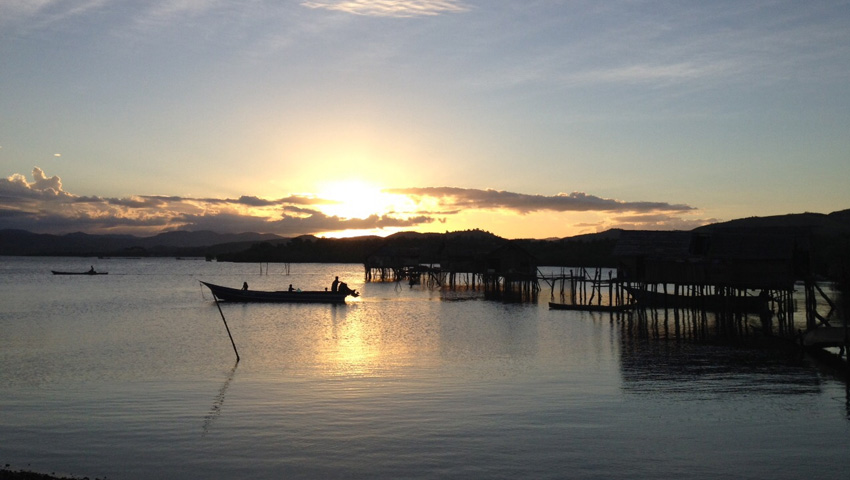Two contrasting images of Indonesia’s maritime resources have dominated the popular consciousness. Once, Indonesia’s ancient, royal kingdoms shed blood to protect their vast maritime empire. More recently this powerful image has been reduced to that of a poor local fisherman eking out a living from his wooden fishing boat. However, following his inauguration in October 2014, President Jokowi revived the vision of Indonesia as a global maritime nexus and the nation is now set to regain its place as a maritime power.
In May 2015, the Knowledge Sector Initiative (KSI) initiated its support to Perkumpulan Praxis and the Indonesian Institute of Sciences (LIPI) and their efforts to build a maritime policy network. This aims to reconcile the vision of Indonesia as a global maritime power with important, strategic issues regarding Indonesia’s ocean and coastal economy. Moreover, the network seeks to narrow the gap between researchers and policy makers, as well as improve the way they communicate and manage the flow of knowledge in the maritime policy-making process. Public participation will also be integral to this network, including active input from fishing communities and small-scale fishing units.
As a start, Perkumpulan Praxis and LIPI conducted the first Focus Group Discussion (FGD) with other stakeholders on May 12, 2015 in Jakarta. The majority of participants acknowledged the complexities of the issues that they face and the danger in reducing these to being focused on the “poor local fisherman in a boat”.
The FGD began with understanding that the problems of creating clear, evidence-based maritime policy are rooted in Indonesia’s inland-oriented culture and civilization. Since the nineteenth century, Dutch colonial rule in the archipelago rested on a land-based economy, particularly plantations and small extractive industries. Both governments and people turned away from depending on the sea for their livelihood. After almost seventy years of independence little has been done to change this and Indonesia seems to have forgotten that archipelago actually means “foremost (arkhi) is the sea (pelagos)”, and that the great kingdoms of Srivijaya and Majapahit – referred to by President Jokowi in his inaugural address – used the sea to expand the trade of commodities and thereby their influence.
“Interconnections between sectors of the economy and the geographies of power – ingredients of a robust policy-making environment – are not addressed in the current increase of maritime affairs in Indonesia. Well-informed and connected groups will work better when they take on the role of intermediaries between research producers and their potential users in maritime policy making,” said Ahmad Badawi from Perkumpulan Praxis. He added that technically, in order to re-establish a maritime-development orientation, policy making should start with managing the life source of coastal communities (fishermen and maritime stakeholders). This implies managing the welfare of coastal communities, coastal sustainability, and the marine ecosystems that these communities rely upon.
Understanding the truth behind the “poor fisherman” image is critical to the maritime policy network. This will require recognition and knowledge of the problems, strengths and ability of these communities to sustain themselves in the current Indonesian maritime environment. Currently, local fishing communities have limited access to and ownership of the resources that are vital to their livelihood. Damage to the coastal and sea environment, as a result of development and over-exploitation, limited physical resources such as boats and equipment, climate change and human resource problems have a profound impact on the outlook of the Indonesian fisherman. Fishing is no longer considered a noble or lucrative profession. Therefore, a basic strategy is to empower fishermen and their communities.
Also present during the FGD, were representatives from the Ministry of Development Planning, Ministry of Marine Affairs and Fisheries, and the Indonesian Traditional Fishermen’s Union. This FGD constitutes the first step in thePraxis maritime-coastal livelihood program and is supported by KSI. The next step in the program will be followed up by the FGD and will focus on recognising the real impact of policy on the maritime-coastal livelihood in Indonesia for fishing communities on environmental sustainability, and on recognising the research experience of various parties and community best practices in exploring local maritime resources. Finally, the process and findings will provide the basis for developmental policy change related to maritime-coastal livelihood issues in regional areas and at national level.






